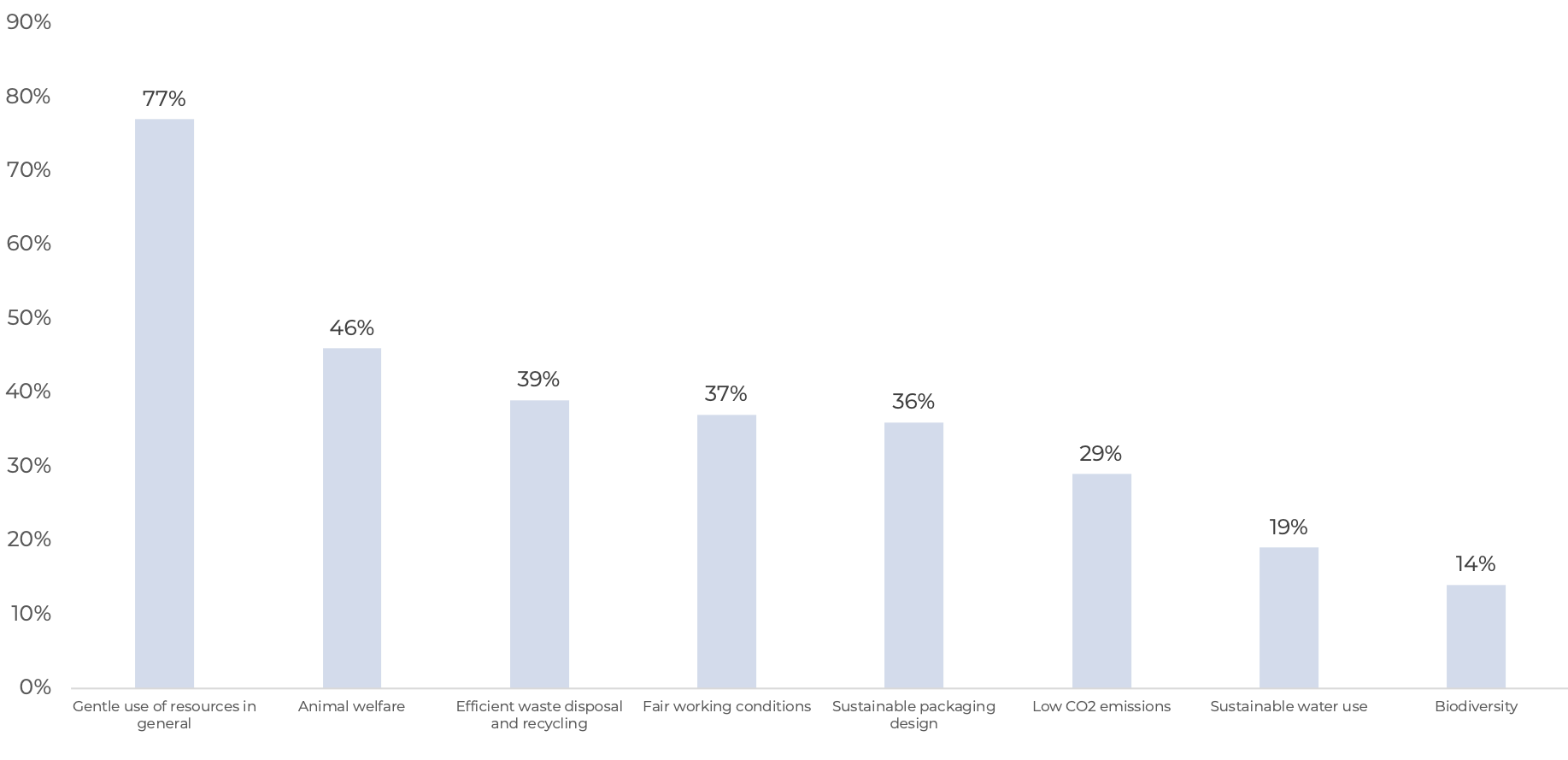Something is moving: With the help of apps such as CodeCheck, millions of consumers today consciously decide what they want to consume and, thus, also which products they buy and from which manufacturers. But how do conscious consumers tick and how do they behave? CodeCheck Insights provides answers.
Conscious consumers pay attention to environment and health
When it comes to the motivation for using tools such as CodeCheck, two main reasons stand out: environmental protection is first (97 percent), and one’s own health is second (78 percent). Sustainability, in particular, has become a central aspect in the lives of conscious consumers. Users are aware of the negative effects that ingredients such as palm oil, packaging materials such as plastics, unfair and non-regional production, and irresponsible use of resources have on our environment and buy accordingly.
The three most important sustainability issues for conscious consumers are the following:
- Conserving resources in general (77 percent)
- Animal welfare (46 percent)
- Efficient waste disposal and recycling (39 percent)
*Users could choose three topics
Conscious consumers are also committed to fair working conditions, sustainable packaging design, lower CO2 emissions, sustainable water use, and biodiversity — according to a survey of 4,200 CodeCheck users.

Conscious consumers value sustainability more than price
81 percent would pay more for packaging that does not harm the environment or animals. A third of them would even be prepared to pay between 16 and 25 percent more for sustainable packaging. By comparison, 48 percent of the total German population is prepared to pay more for sustainable products, according to a study by the Consumption and Media Analysis Working Group (VuMA).
What companies can learn from conscious consumers
Companies need to understand the new meaning of sustainability for consumers. Not only does the number of 3.5 million CodeCheck users speak for it, but so does movements such as “Fridays for Future” and the increasingly popular climate strikes worldwide. If companies do not act sustainably, they will face a crisis in social media and slumps in sales. Conscious consumers are also finding that although many retail chains have their own organic initiatives, organic products are often still sold in plastic packaging. “Sustainable action in 2019 is different,” writes a CodeCheck user. More and more conscious consumers simply consider it “common sense” that retailers, manufacturers, and consumers act in a meaningful and responsible way. The trend is clearly towards conscious consumption. Brand loyalty is being replaced by sustainability factors — if a brand or product does not meet the needs, it is replaced by an alternative. Products with degradable packaging and good ingredients achieve higher satisfaction rates and are being bought more frequently.
Looking for tailor-made insights on conscious consumers for your company?



